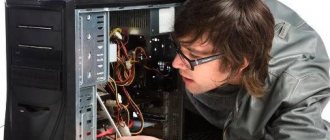Who is the bartender?
This profession was first discussed in the United States of America. At a time when turnover began to increase in shops, in order to increase sales, the owners introduced the function of selling and bottling alcohol on site. Later, these two zones were separated, and the store began to exist separately, and the bar began to exist on its own. The bartender's responsibilities include serving customers. In order to attract more visitors to their establishment, real professionals organize a real freestyle show, surprising clients. This work usually takes place in the evening and at night, among loud music and drunken surroundings.
Bartender categories
Bartenders can also be divided into several categories, especially in large restaurant-type establishments. Each category representative must perform the following functions:
- Chief bartender. A hired, trained and supervised restaurant staff of 10 maintains service standards, food quality and customer satisfaction and retention. Managed bar area including design and cocktail menu, inventory, compliance and high quality customer relationships to add value to the restaurant. Order and maintain inventory of bar items including alcohol, soft drinks and supplies to ensure high volume of daily and weekly sales. Produce and balance daily and weekly sales reports to evaluate and coordinate personnel and then improve the organization's profits.
- Bartender. Uses techniques in arranging goods and drinks on display to attract income and good relationships with customers. Works 15-25 hours when enrolled as a full-time student. Must demonstrate the ability to multi-task at a personal pace while working with a variety of situations/people with over 1,000 clients per week.
- Bartender-server. Serves cuisine, increasing overall sales and revenue. Promotes sold and featured menu options to increase guest satisfaction. Product communication knowledge is required to facilitate guest decision making. Creates a welcoming environment for guests while offering unforgettable dining experiences. Maintains all sanitation procedures and food safety guidelines. Demonstrates flexibility regarding work assignments and work schedules. Enhances knowledge of mixed specialty beverages.
- Chef bartender. High-end bartending experience and skills in mixing drinks for premium clients. Using ingredients and combination suggestions along with a large team of privately hired bartenders from around the world. Works with clients to create new professional career opportunities and significantly increase restaurant revenue.
- Barista. Mixes and serves warm beverages to bar and dining room customers. Demonstrated ability to keep a bar organized, stocked and clean. Monitors cash registers and collects payments for beverages and food items. Greets and accommodates customers. This is a person who professionally prepares espresso-based coffee drinks. It is also a term for bartenders with a high level of skill in creating espresso drinks (lattes and cappuccinos). Typically, baristas working in coffee shops, cafes or coffee bars operate commercial espresso machines.
Although their operation may seem simple, commercial espresso machines are complex to use. Some are manual and require a great deal of skill, preparation and the ability to adapt to the nuances of each batch of coffee, the day's weather, the drinker's preferences, etc.
- Lead bartender. Collects money for drinks served and controls cash receipts. Trains and manages other employees. Controls inventories and materials and tracks their consumption. Maintains a clean and organized work area. Follows safety, sanitation and legal practices for food and beverage handling. Also has developed excellent relationships with clients. Opens and closes the restaurant independently. Replenishes depleted items daily. Signs checks to distributors. Helps prepare for events.
When necessary, he tries to help his colleagues. Ensures inventory accuracy. Helps in product development. Creates marketing strategies, event planning to increase sales.
Personal qualities of a bartender
In order to become a bartender, a person must have such personal qualities as a good eye, attentiveness and excellent memory. After all, you need to remember which of the visitors ordered which cocktail. Since this job is an eternal relationship with tipsy people, having a sense of humor is also welcome. Business communication skills or simply the ability to avoid conflict situations will be useful. And also a person in this profession must be in excellent physical shape and not be prone to alcoholism.
The bartender must be friendly and sociable, and be able to carry on a conversation. Often people come to such establishments with problems that they would like to forget about with the help of alcohol. Supporting a person in difficult times can be the key to his becoming a regular visitor.
What should a bartender do?
The responsibilities of a bartender imply the following: he must learn merchandising, know his entire range of alcoholic beverages, as well as the correct conditions for their storage. In addition, you need to understand the rules for preparing and dispensing cocktails.
Bartender responsibilities include the following skills:
- He must make excellent use of the equipment provided for his work.
- You must be able to prepare drinks according to previously created recipes.
- It is imperative to quickly and accurately calculate the proportions of alcoholic beverages.
Requirements for a bartender
Typically, bartender requirements include:
- experience;
- communication skills.
Depending on the institution, other skills and knowledge may be required:
- knowledge of a foreign language (at least the basics);
- good knowledge of the nearest attractions of the city;
- knowledge of wines;
- artistic abilities.
Bartender job description
Upon entry into work, each new employee is provided with instructions for study, which clearly indicate the job responsibilities of the bartender and other employees of the drinking establishment. This document also specifies the work schedule, salary conditions and much more. Based on this document, we can say that the bartender’s job responsibilities are as follows:
- take orders and provide consultations on drinks;
- serve visitors without leaving the bar, treating them to drinks, as well as ready-to-eat dishes;
- prepare alcoholic and non-alcoholic drinks;
- make calculations;
- keep the bar counter and display case with drinks clean and tidy;
- monitor the quality of musical equipment.
Rights
The bartender has the right:
— demand from the visitor compensation for damage caused by their unlawful or hooligan actions; — make independent decisions in the event of controversial situations arising within his competence, if the decision he makes does not run counter to the interests of the organization; — submit proposals for improvement of work related to the performance of their duties for consideration by management; - demand from the management of the enterprise assistance in the performance of their official duties and rights.
Where can you get a job as a bartender?
You can work as a bartender in various establishments, which include service bars, regular cafes, grill bars, clubs, and restaurants.
The responsibilities of a bartender in a cafe and a waiter-bartender do not differ much in their functional intensity. These two specialties require almost identical working conditions. The responsibilities of a waiter-bartender are to take an order from a client. In case of any difficulties, the employee must offer the visitor a dish or drink at his discretion. The responsibilities of the waiter-bartender include preparing the order, filling it out, and also serving the client his finished dish. The work surface must always be clean and tidy. The responsibilities of a bartender in a cafe also include settlement transactions with guests of the establishment.
Barista Responsibilities
The responsibilities of a barista are determined by the very name of the profession - “coffee master.” This means that this person knows how to brew coffee, which can be prepared in different ways.
But if only everything were so simple - make yourself a coffee and enjoy your work, receiving a decent salary and rave reviews from visitors. In reality, what a barista needs to know and what his job responsibilities include is much more than just making coffee.
What are the responsibilities of a barista?
It is difficult to list all the responsibilities of a barista, the person behind the bar. The main responsibility where professionalism begins is having a thorough knowledge of coffee blends.
Hence, the barista owns:
- knowledge of different types of coffee;
- information about the regions where coffee beans are grown;
- the ability to recognize the aromas inherent in roasted coffee beans.
A barista can:
- adjust the pressure in the coffee machine;
- calculate the number of ingredients needed for one cup of coffee;
- draw intricate patterns on coffee foam, that is, master the art of latte art.
Also, the duties of a barista - a specialist behind the bar counter - include having a personal assessment, in particular, he needs:
- be sociable; the barista can ask any person about his preferences;
- be able to communicate with people, because it is he who serves the guests and must find an approach to each client.
- be friendly, friendly, so that guests want to place an order with him;
- have a sense of responsibility to always prepare only a tasty drink;
- have creativity to decorate brewed coffee.
He is like an artist who is constantly under the gaze of the audience.
Job responsibilities of a barista
The job responsibilities of a barista are collected in the job description, which he signs when applying for a job. This instruction is also signed by the management of the bar or the management of the restaurant, thereby defining the range of responsibilities of the specialist, drawn up on the basis of the Labor Code of the Russian Federation. The instruction is considered valid if it bears the seal of the institution.
https://youtu.be/Cn_9FxS_Ztc
The instructions include the following points:
- general responsibilities of a specialist;
- lists what a barista should know;
- determines his rights, in particular, the opportunity to demand normal working conditions;
A special point of the Instructions is to determine the degree of responsibility of the barista for the equipment and inventory that is needed for his work.
Job responsibilities of a bartender-cashier
The bartender-cashier is at the full disposal of the bar director and follows all his instructions. An employee can also follow the instructions of the chef, but only if they do not contradict the instructions of the management. In addition to the above, the responsibilities of a bartender-cashier include various technical aspects. An employee must arrive at work before the establishment opens in order to clean up himself and his workplace. It is strictly forbidden to leave your seat unattended by waiters. The bar worker must be present during the reception of drinks and other products, and at the end of the working day, place orders for products. When conducting an inventory, the bartender-cashier must be present in person. He should also record equipment malfunctions and the presence of broken dishes. He must always check drink certificates on time and be prepared for sudden inspections.
The bartender-cashier, according to the job description, monitors the condition of equipment and lighting, both internal and external, in the bar.
For violation of duties, the following penalties may be applied to an employee: reprimand, loss of bonus, suspension from work or dismissal.
General information
The bartender job description form is issued to the applicant at the time of signing the employment contract. Many business managers neglect this document. This position is incorrect, since the presence of such an act in production allows one to avoid many problems.
For example, a job description sheet for a bartender helps improve the psychological microclimate in the team. This happens due to the fact that each of the employees knows what he needs to do, since the range of responsibilities concerns only one person and does not overlap with any of the other employees. Also, in the event of an employee’s dismissal, the document can be used by personnel officers as instructions for finding a new employee.
We invite you to familiarize yourself with: Register of checks for tax deductions: sample filling
The form includes requirements regarding education, work experience, qualifications, and possession of certain skills, which greatly facilitates the selection of personnel. The bartender job description agreement is also used to solve other problems. For example, it can be provided as evidence in legal proceedings. The document helps prove the legality of the actions of the employer who fired the employee or underpaid him wages.
Order acceptance and fulfillment process
Having seen a person, you need to greet him and clarify whether the client has decided on the choice of drink or dish. If a visitor comes to the establishment for the first time and is new to the menu, it is worth offering him several options for drinks or dishes. After receiving an order from a client, the bartender begins to fulfill it.
The mistake of many workers in this profession is that, having received an order, they immediately begin to carry it out. It will be much easier and faster to work if he knows what other visitors are ordering and can combine several orders into one.
Another lesson for novice bartenders is that during periods of heavy crowding it is better to sell cheaper alcoholic drinks and cocktails, and to sell more expensive types of alcohol during quiet hours.
It is strictly forbidden for an employee to put pressure on a customer and force a drink on him. There are two types of sales in bars. The first is when, as a result of the absence of a drink at the bar, the client is offered an equivalent replacement. The second is when, instead of the missing drink, an alternative is offered in the form of a more expensive and high-quality variety.
If a client says that he wants to celebrate an important event in their life with a girl, then an excellent option would be to offer them a bottle of champagne or wine.








